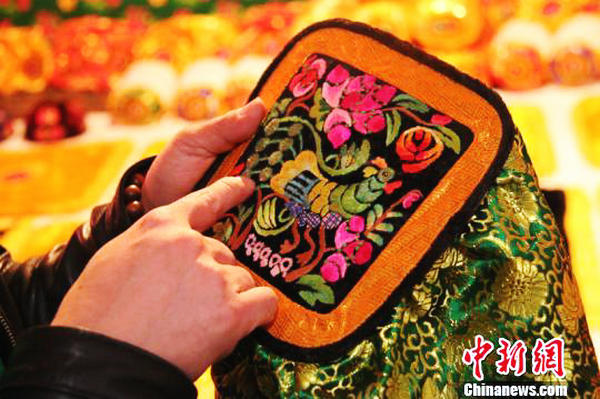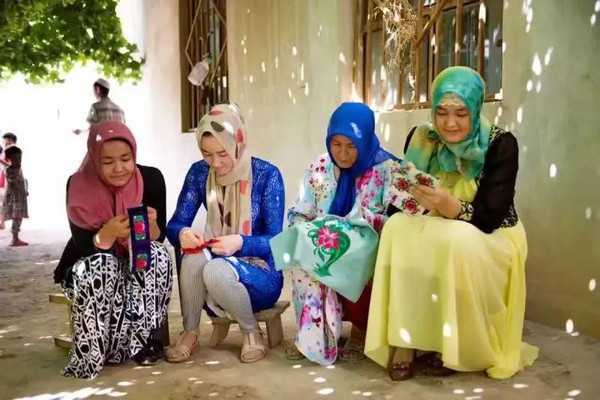
A series of exhibitions and fashion shows featuring traditional Uygur embroidery and handicrafts will be held in Hami, Xinjiang Uygur autonomous region from August 17 to 19.
The Ministry of Culture will hold a meeting discussing the promotion of traditional culture and preservation in the city during this period.
Being listed as the National Intangible Cultural Heritage in 2008, traditional Hami Uygur embroidery has a history of hundreds of years. It is a necessary decoration in the daily lives of Uygur people in Hami, with exquisite patterns and skillful knitting.
Its birthplace, Hami, is an important city on the Silk Road, and is home to diverse ethnicities and cultures. In 1978, archaeologists found a large quantity of colorful woolen clothes with delicate embroidery in a late Bronze Age tomb in Hami. Many craftsmen and craftswomen who specialized in Suzhou embroidery were invited to Hami to give training to the locals on embroidery in 1699.
The Ministry of Culture established the first traditional culture work studio in Hami in March this year. Atron, the Academy of Arts and Design of Tsinghua University and the local government reached an agreement to promote the traditional Hami Uygur embroidery through the market and create a brand named Mi Zuo, which translates literally into "made in Hami", for the embroidery.
At present, there are 21 Uygur embroidery inheritors and 4,000 skilled female embroiderers in Hami.



















































